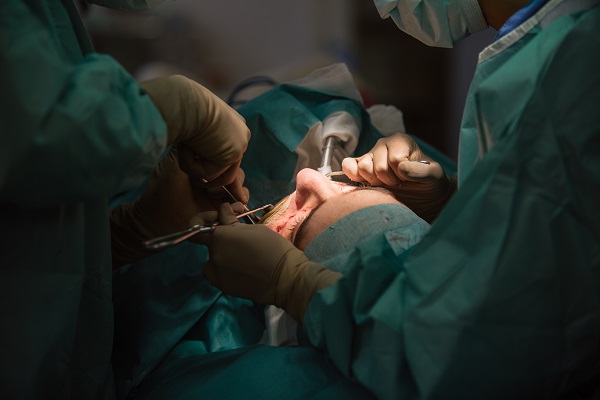Reasons for a Chin Graft From an Oral Surgeon

When a tooth is lost, bone resorption occurs, necessitating a chin graft procedure from the surgeon. For many individuals, losing a tooth may not seem like a huge concern at first, particularly if the tooth is not in the front row. But even if the lost tooth does not affect the smile's appearance, there are several practical reasons that it should be replaced. Fortunately, modern technology has made bone grafting a painless procedure for oral surgeons, enabling patients to enjoy their smiles for years to come.
The need for a chin graft
A chin graft treatment augments a depleted jawbone by taking bone material around the chin area. There are several reasons that patients may need chin grafting, both cosmetically and functionally.
Missing tooth
Bone grafting is likely to be required whether a tooth is gone due to extraction or was knocked out by accident. Without the tooth to stimulate the jawbone, it will erode with time, making dental implants more difficult to place. A chin grafting can reinforce the region by restoring the bone where the lost tooth is, thus providing patients with more alternatives for replacing the tooth.
Periodontal disease
Gum disease, or periodontal disease, weakens the jawbone and causes teeth to loosen. Fortunately, it is possible to treat and reverse periodontal disease, and the chin graft procedure can be used to provide a stable foundation for teeth. If the patient has had periodontal disease for a long time, bone grafting may be required to strengthen the bone and support the teeth or dental restoration.
Dental misalignment
Misaligned teeth can lead to gradual bone loss. If teeth are crowded or are entirely out of position, bone stimulation might progressively diminish if the teeth are not realigned. Straightening teeth may be accomplished in various ways, each with its own set of advantages. However, chin grafting may be required to guarantee that the teeth are properly supported after being realigned.
Support for dental implants
An oral surgeon's primary objective for a chin graft is to set up support for dental implants. All the aforementioned factors may ultimately necessitate the use of implants. However, implants may not be feasible unless the supporting bone is sufficiently strong and stable. Bone grafting may restore a lost bone, even if it has been gone for an extended period. When the supporting framework has been repaired, patients may be able to obtain dental implants.
Visit the oral surgeon for an appointment
The oral surgeon may recommend chin grafting treatments for patients to enhance their overall dental health. If you are suffering from any of these symptoms, you should see an oral surgeon as soon as possible. The dental professional will assess your condition and determine the best approach. Contact the dental office to book an appointment.
Request an appointment here: https://spectrumsurgical.net or call Facial Spectrum at (816) 524-4334 for an appointment in our Lee's Summit office.
Check out what others are saying about our services on Yelp: Read our Yelp reviews.
Recent Posts
Infections after dental procedures occur frequently and that is primarily due to a lack of education on how to avoid it, however, with the help of an oral surgeon, infections can be avoided in a few ways. Oral surgeons are dental professionals who focus on invasive procedures that are necessary in order to treat or…
Your facial surgeon will prepare you well before your jaw surgery. This invasive procedure can improve your appearance and relieve your pain. It can also enhance your dental health. Here are the important details that your facial surgeon would want you to know before your jaw surgery.The upper and lower jaws are important in completing…
Clinical studies show that the dental implant remains the gold standard of dental restorations. Implants can help bring back your smile and dental function. The right dental professional can perform the procedure without any issues. Here are the details on how an oral surgeon approaches a dental implant surgery.Choosing a dentist who has training and…
A jaw surgery can bring back your smile and dental function. This procedure can restore your self-esteem. It can even open doors for new opportunities in your personal and professional life. Knowing more about this procedure can help you prepare for it. Here are the details on how jaw surgery can help bring back your…


